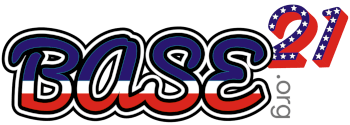- CCTV Setup Guide, Why You ShouldInstall It - February 6, 2024
- Did Fidel Castro Almost Join MLB? - November 28, 2023
- Chastity Belt Myth of the Middle Ages - November 27, 2023
As history tells it, numerous rulers throughout the ages have fancied themselves athletes, often claiming prowess in various sports. Fidel Castro, the former leader of Cuba, was no exception to this trend. The enduring legend suggests that Castro possessed remarkable talent as a baseball pitcher, catching the eyes of Major League Baseball scouts. But how much of this tale is rooted in fact, and what can we truly glean from Castro’s sports endeavors?
Fidel Castro, born in 1926, came from a prosperous Spanish family who settled in Cuba during the War of Independence. In his formative years, Cuban professional baseball leagues were emerging, featuring a unique landscape where racial divisions were notably absent, setting them apart from their American counterparts. White, Latinx, and Black players shared the field, fostering a rich and diverse talent pool.
While Castro did partake in baseball during his school days, he truly excelled in various other sports, including basketball, track, and even ping-pong. His athletic prowess earned him recognition as one of Havana’s top school-aged athletes during his junior year. However, his baseball skills were only sufficient for high school-level play, limiting his baseball career.
Several stories have perpetuated the myth of Castro’s baseball greatness. One tale revolves around Joe Cambria, a renowned Cuban scout for the Washington Senators, who was said to be captivated by Castro’s curveball. Another account suggests that the New York Giants recognized Castro’s exceptional talent, offering him a substantial signing bonus. Unfortunately, these legends don’t align with factual records.
While anecdotal tales hint at Castro’s potential as a baseball player, the documented evidence paints a different picture. Castro’s dedication to baseball led him to attend tryouts unannounced, but his interest was far from pursuing a professional career. Even if scouts showed interest, he never seriously considered it.
To understand Castro’s choices better, we must consider the historical context. In the mid-20th century, baseball players earned a fraction of today’s salaries, with even the highest-paid players making modest incomes. Baseball was not a reliable path to financial security, and the threat of career-ending injuries loomed. Castro, born into wealth, had more prestigious and lucrative career opportunities in politics and law, making baseball a less appealing prospect.
While the legend of Fidel Castro’s baseball prowess remains captivating, the reality is far from the tales that have circulated for decades. Castro’s interest in sports and his involvement in school-level baseball certainly existed, but the notion of him turning down lucrative Major League Baseball offers appears to be a creation of myth rather than fact. Ultimately, Castro’s choices were driven by a broader set of ambitions and opportunities that extended beyond the baseball diamond.
Fidel Castro Facts
- Before his rise to political prominence, Fidel Castro pursued a legal education at the University of Havana. He earned his law degree and even briefly practiced law in Cuba.
- While not the legendary baseball pitcher as some myths suggest, Castro did have a genuine love for baseball. He played the sport during his school years and remained a fan throughout his life.
- Castro was often associated with cigars, and he was known to enjoy smoking them. Cuban cigars, renowned for their quality, were among his favorites.
- Education was a priority for Castro’s government. Cuba boasts a high literacy rate, largely due to Castro’s emphasis on education as a fundamental right.
- Castro had a deep appreciation for literature and poetry. He often quoted poets and even wrote poetry himself. His speeches sometimes took on a poetic and rhetorical style.
- During his tenure as Cuba’s leader, Fidel Castro survived numerous assassination attempts. Some estimates suggest there were more than 600 plots to assassinate him, making his survival remarkable.
- Castro acquired several nicknames throughout his life, including “El Jefe” (The Chief) and “Comandante.” These monikers reflected his roles and status as a revolutionary leader.
- Cuba’s healthcare system is renowned for providing free healthcare to its citizens. Castro played a pivotal role in establishing and promoting this system, making healthcare accessible to all.
- Fidel Castro was known for his powerful and lengthy speeches. His speech during the United Nations General Assembly in 1960, where he famously banged his shoe on the podium, remains a historic moment.
- Castro had a penchant for dairy products, particularly cheese and milk. He often highlighted the importance of dairy in the Cuban diet.
Castro’s College Baseball Stint
The story suggests that Fidel Castro’s journey into the realm of baseball commenced during his time at the University of Havana in the late 1940s. It was here that he reportedly caught the eye of baseball scouts from the United States. But was Castro a pitcher of exceptional talent, as some accounts suggest?
The myth of Fidel Castro as a promising pitcher has endured over the years, fueling speculation about what might have been. However, historical evidence and accounts from that period cast doubt on the veracity of these claims.
Castro’s Multifaceted Sporting Prowess
While baseball might have been part of Castro’s athletic interests during his youth, it wasn’t the sole focus of his sporting endeavors. Castro showcased his athleticism in various disciplines, including basketball, track, and even ping-pong. His achievements in these sports paint a picture of a versatile athlete.
The Baseball Scouting Stories
Two prominent tales of baseball scouts showing interest in Castro’s pitching abilities have circulated. One involves Joe Cambria, a renowned Cuban scout for the Washington Senators. It’s said that Cambria was so impressed by Castro’s curveball that he wanted to sign him. The other account involves the New York Giants, who purportedly saw Castro’s potential as a pitcher during his time at the University of Havana.
Despite the enticing narrative surrounding Castro’s baseball talents, there’s little concrete evidence to support these claims. The available historical record challenges the notion that Castro possessed the skills to make it in professional baseball.
Understanding the context of Cuban baseball during Castro’s youth adds depth to this story. The Cuban professional baseball leagues were in their nascent stages, with players like Josh Gibson and Satchel Paige participating. Castro’s possible involvement in this baseball milieu reflects the era’s enthusiasm for the sport.
The Rejection of Alleged Offers
The tales of scouts pursuing Castro with offers raise intriguing questions. If these stories are accurate, why did Castro decline the opportunities? The economic and societal landscape of baseball during that period provided valuable insights into his decision-making.
Castro’s Life Beyond Baseball
Ultimately, Castro’s life took a different trajectory. He embarked on a path of political activism and revolutionary leadership, forever altering Cuba’s course. While the world may never know whether Castro had the potential to pitch in the major leagues, his legacy as a revolutionary leader remains undeniable.
The significance of baseball in Cuban culture goes beyond individuals. It symbolizes freedom and egalitarianism, a stark contrast to bullfights, which the Cuban people were historically expected to attend. This cultural shift underscores the enduring importance of baseball in Cuba.
While the tales of scouts’ interest and offers from Major League Baseball teams have persisted, the evidence to substantiate these claims remains scarce. This enigma adds another layer to the complex tapestry of Castro’s life, reminding us that historical figures often hold hidden facets that continue to captivate our curiosity.

